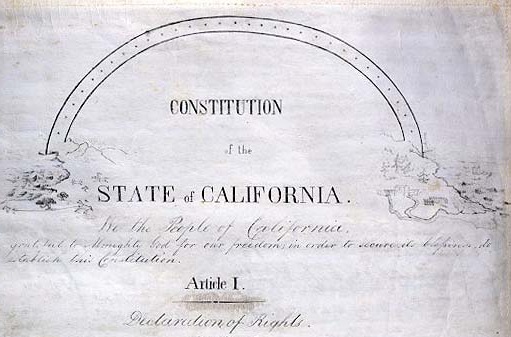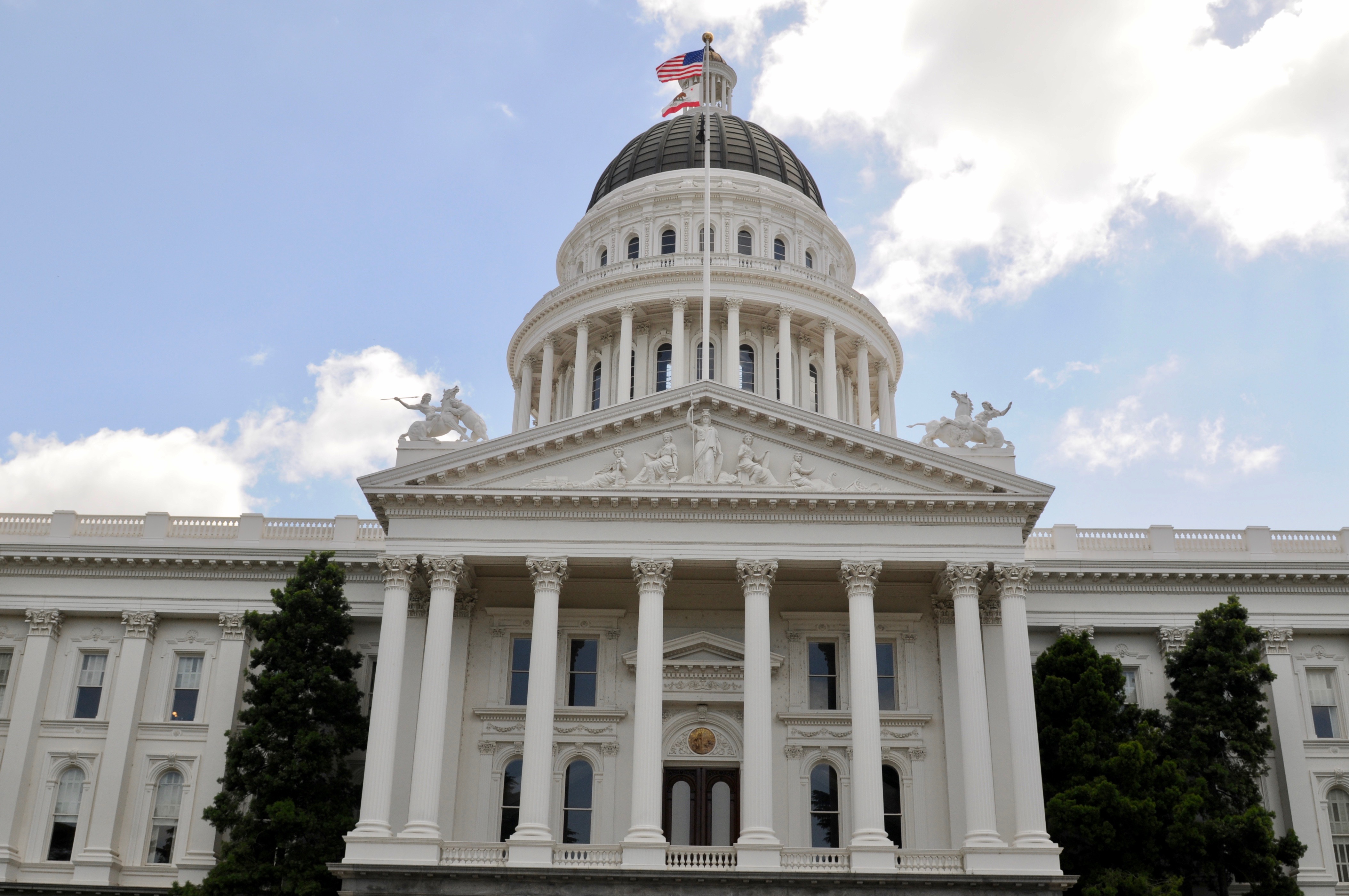
California Constitution. (Photo: www.sos.ca.gov)
Effective Versus Operative Dates of Statutes
The effective dates of statutes is found in the California Constitution
By Chris Micheli, November 13, 2019 6:04 am
There is often confusion regarding effective versus operative dates. Specifically, Capitol observers often inquire when a statute actually “takes effect.” When it takes effect can be different than when the statute is operative.
January 1 following the year a bill is enacted is the most common effective date and is basically the “default” effective date, unless the statute specifies something differently. A common definition of “effective date” is when the new law is “on the books.” A common definition of “operative date” is when the new law becomes operative (which commonly, but mistakenly, is described as when the new law is “in effect”).
Any bill can specify a delayed effective date. There are certain types of bills that are deemed to be in effect upon enactment (i.e., when the governor signed them and the secretary of state assigns a chapter number). Therefore, unless the bill calls an election, contains an urgency clause, or is a budget-related or tax levy measure, one can presume the effective date of a new law is January 1 of the following year.
What about operative dates? An operative date is distinguished from an effective date. “A statute may be worded so as to provide for an operative date other than its effective date” 28 Ops. Atty. Gen. 20 (1956). An operative date, therefore, may be the same as the effective date, or it may be different than the effective date.
According to a decision of the court of appeal in California, “unlike a statute’s effective date, which is determined according to immutable rules written into the state constitution, its operative date, the date upon which the directives of the statute are actually implemented, is set by the Legislature in its discretion.” People v. Verba (2012).
By way of background, in the California Legislature, certain bills take effect immediately upon the Governor signing the bill and the measure being chaptered by the Secretary of State. These are measures are those containing urgency clauses or tax levies, as well as bills calling an election.
The general rule for the effective dates of statutes is found in the California Constitution, Article IV, Section 9(c). That section provides:
(c) (1) Except as provided in paragraphs (2) and (3) of this subdivision, a statute enacted at a regular session shall go into effect on January 1 next following a 90-day period from the date of enactment of the statute and a statute enacted at a special session shall go into effect on the 91st day after adjournment of the special session at which the bill was passed.
(2) A statute, other than a statute establishing or changing boundaries of any legislative, congressional, or other election district, enacted by a bill passed by the Legislature on or before the date the Legislature adjourns for a joint recess to reconvene in the second calendar year of the biennium of the legislative session, and in the possession of the Governor after that date, shall go into effect on January 1 next following the enactment date of the statute unless, before January 1, a copy of a referendum petition affecting the statute is submitted to the Attorney General pursuant to subdivision (d) of Section 10 of Article II, in which event the statute shall go into effect on the 91st day after the enactment date unless the petition has been presented to the Secretary of State pursuant to subdivision (b) of Section 9 of Article II.
(3) Statutes calling elections, statutes providing for tax levies or appropriations for the usual current expenses of the State, and urgency statutes shall go into effect immediately upon their enactment.
Chapter 6 of the California Government Code also deals with the operation of statutes and resolutions. The general rule concerning the effective dates of statutes is found in Section 9600(a), which provides that a statute enacted at a regular session shall go into effect on January 1 next following a 90-day period from the date of enactment of the statute and a statute enacted at a special session shall go into effect on the 91st day after adjournment of the special session at which the bill was passed.
The exceptions to this general rule are found in Section 9600(b) of the Government Code, which provides that statutes calling elections, statutes providing for tax levies or appropriations for the usual current expenses of the state, and urgency statutes shall go into effect immediately upon their enactment.
One should also be aware of Government Code Section 17580, which provides:
No bill, except a bill containing an urgency clause, introduced or amended on or after January 1, 1989,that mandates a new program or higher level of service requiring reimbursement of local agencies or school districts pursuant to Section 6 of Article XIII B of the California Constitution shall become operative until the July 1 following the date of on which the bill takes effect, unless the bill specifically makes this section inapplicable or contains an appropriation for the reimbursement or a specification that reimbursement be made pursuant to Section 17610.
Under these rules, for example, a non-urgency bill passed on September 5, 2019 would take effect on January 1, 2020. A non-urgency measure, however, that is enacted in the second year of the two-year session would go into effect on January 1 following a 90-day period from the date of enactment. By contrast, statutes enacted at a special session take effect on the 91st day after the adjournment of the special session at which they were passed.
The delays in the effective dates of the statutes enacted at regular and special sessions provide a 90-day interval between the enactment and the effective date of the statute as is required by the Constitution in order to permit the circulation and presentation of a referendum petition requesting that the statute, or a part of it, be submitted to the electorate.
- Legislative Intent Does Not Equate to a Mandate - April 27, 2024
- Frequently Asked Questions about State Agency Ethics Training - April 26, 2024
- Frequently Asked Questions about When Elected Officials Take Office - April 25, 2024





SB 567’s effective date is Jan 1 2024 with an operative date of April 1, 2024.
Are renters protected under this new bill as of Jan 1?